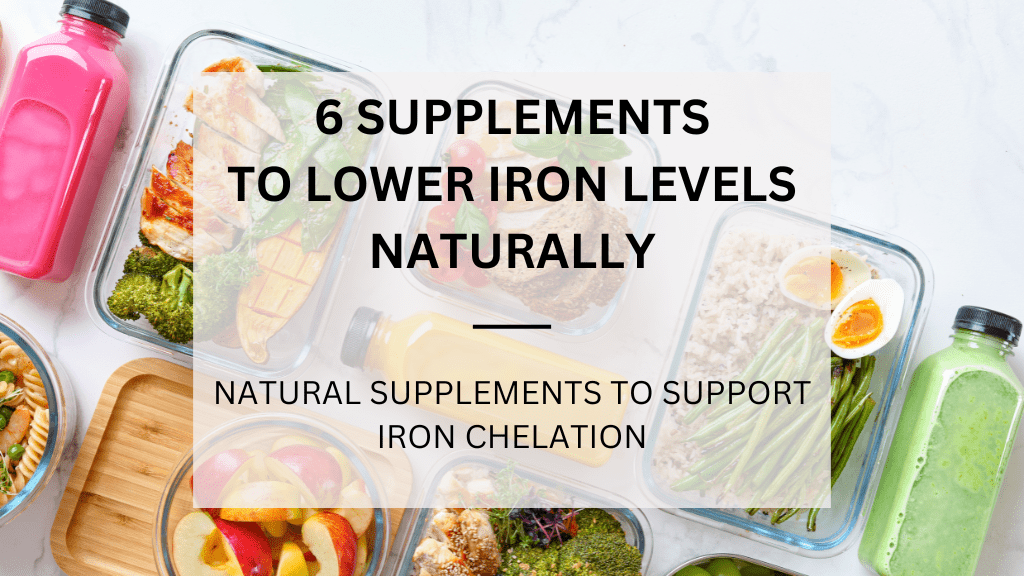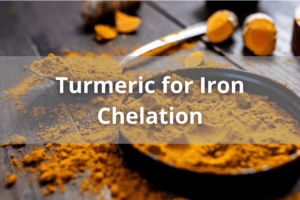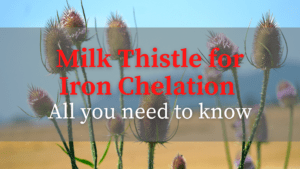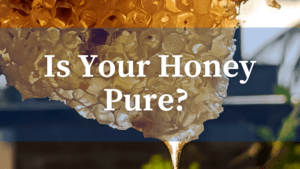
If you’re wondering whether there are natural supplements to lower iron and ferritin levels, you’re in the right place!
Iron overload, or excess iron in thalassemia major or hemochromatosis can have serious health implications.
While medical treatments like phlebotomy and chelation therapy (e.g., Desferal, Exjade) are essential, certain natural supplements can support these treatments and promote overall health.
In this article, we’ll explore 6 proven supplements that can help chelate iron and reduce ferritin levels naturally.
1. Turmeric (Curcumin): The Potent Antioxidant and Iron-Chelator
Turmeric is more than just a culinary spice; it has powerful medicinal properties. The active compound in turmeric, curcumin, is an antioxidant, anti-inflammatory, and has iron-chelating abilities. Studies suggest that curcumin can bind excess iron and help prevent oxidative stress caused by iron overload.
- Evidence: A study published in Biometals found that curcumin can reduce ferritin and decrease oxidative stress in the liver.
- Dosage: Experts recommend taking 500-1000 mg of curcumin daily, combined with piperine (BioPerine) to enhance absorption.
- My experience: I’ve been using Nature’s Nutrition Turmeric Curcumin with BioPerine for over two years and noticed improvements in joint pain and reductions in ferritin levels.
Read my full article on how turmeric can help reduce iron levels.
2. Quercetin: A Powerful Iron Chelator
Quercetin is a flavonoid found in foods like onions, apples, and berries. It has strong antioxidant properties and has been studied for its ability to chelate iron and reduce inflammation.
- Evidence: Research on patients with thalassemia major (a genetic disorder causing iron overload) showed that quercetin, when combined with Desferal, reduced ferritin and inflammation more effectively than Desferal alone (Biological Trace Element Research).
- Dosage: A daily dose of 500-1000 mg is generally recommended.
- Recommended product: I suggest Jarrow Formulas Quercetin 500 mg for its effectiveness and quality.
So, it is quite safe to say that quercetin is an excellent iron chelator, and you should definitely add a quercetin supplement to your diet if you are looking to reduce your iron levels.
3. Milk Thistle: Supporting Liver Health and Iron Detoxification
Milk thistle (Silybum marianum) is a well-known liver protectant. It contains the active compound silymarin, which has antioxidant and anti-inflammatory properties, helping to reduce iron absorption and promote its removal from the body.
- Evidence: Several studies, including one from Phytotherapy Research, indicate that milk thistle can chelate iron and protect the liver from damage caused by iron overload.
- Dosage: Start with 150-300 mg daily, increasing gradually as tolerated.
- My experience: I recommend Puritan’s Milk Thistle and Dandelion Extract to support liver function and iron chelation.
You can take milk thistle any time of the day but try to start at a low dose and build up slowly once your body starts to get used to it. If you feel any side effects, stop taking it and talk to a doctor immediately.
I take it at night before sleeping but some people take it with food or even on an empty stomach. It’s considered quite safe so you can try it at multiple times and go with what works best for you.
Check out my article on milk thistle and its benefits for iron reduction.
4. Resveratrol: A Natural Iron Chelator with Antioxidant Properties
Resveratrol is a polyphenol found in grapes, berries, and red wine. It has been researched for its ability to chelate iron and reduce oxidative damage caused by free iron in the body.
- Evidence: According to studies in Biochimica et Biophysica Acta, resveratrol binds to iron and may protect organs like the heart and liver from damage caused by excess iron.
- Dosage: A standard dose of 100-200 mg per day is commonly recommended.
- My experience: While I’m not currently using resveratrol, I’ve taken Puritan’s Pride Resveratrol 100 mg in the past without any side effects.
I was using it to see if it can improve my hemoglobin and endurance. But I don’t think I noticed any significant changes during the time I took it.
I tried it for a couple of months so I can vouch for its safety as it did not cause any problems for me.
Like with any other supplement, it is best to start at a low dose and increase it slowly rather than starting off at a high dose.
5. IP6 (Inositol Hexaphosphate): A Fiber-Based Iron Chelator
IP6, also known as inositol hexaphosphate, is found in high-fiber foods like legumes, cereals, and seeds. It acts as an antioxidant and has been shown to reduce iron levels by binding to iron molecules and preventing their absorption.
- Evidence: Research published in Antioxidants & Redox Signaling suggests that IP6 can help prevent iron overload and lower ferritin levels in those at risk of iron-related conditions.
- Dosage: Recommended dose is around 500-1000 mg per day, ideally taken on an empty stomach.
- Recommended product: I use Nature’s Way Cell Forté IP-6 & Inositol for iron reduction and overall health.
Learn more about IP6 and its role in reducing iron in my detailed article.
6. Green Tea (EGCG): Reducing Iron Absorption
Green tea is rich in antioxidants, particularly EGCG (epigallocatechin gallate), which has been shown to reduce the absorption of non-heme iron from food. It’s a simple, natural way to control iron levels, especially when consumed after iron-rich meals.
- Evidence: Studies in The American Journal of Clinical Nutrition show that green tea decreases iron absorption from food by binding with it in the digestive tract.
- Dosage: You’ll need more than just a cup of green tea for iron chelation. 400-800 mg of EGCG in supplement form can help chelate excess iron.
- My recommendation: NOW Supplements EGCg Green Tea Extract 400 mg is a great option, but avoid supplements containing vitamin C as it enhances iron absorption.
You can also drink green tea but the only problem is that just a cup will not do enough to help reduce iron levels. It will help in reducing the absorption of iron from your gut though.
So, drink green tea immediately after a meal, especially if it’s a meal high in iron like beef or liver.
Read my article on how green tea can help reduce iron absorption.
Final Thoughts
Managing iron overload requires a holistic approach. While medical treatments like phlebotomy are essential, adding natural supplements like turmeric, quercetin, milk thistle, resveratrol, IP6 and green tea can support iron reduction and improve overall well-being. Always consult with a healthcare provider before starting any new supplements, especially if you have existing health conditions.
By using these supplements and following proper dosing, you can naturally lower your ferritin levels and improve your health!
References:
https://www.ncbi.nlm.nih.gov/pmc/articles/PMC4521784/
https://pubmed.ncbi.nlm.nih.gov/31519283/
https://www.ncbi.nlm.nih.gov/pmc/articles/PMC3308202/
This article contains affiliate links



